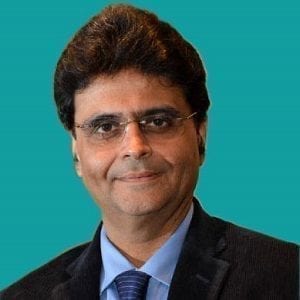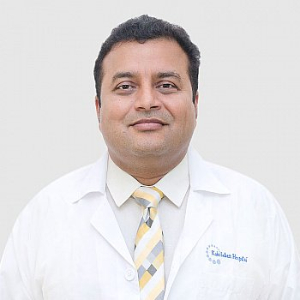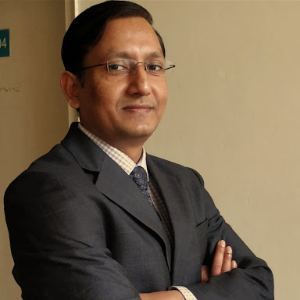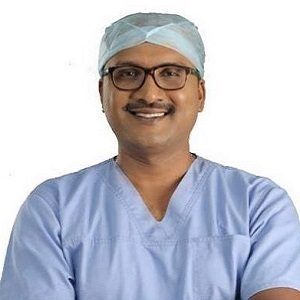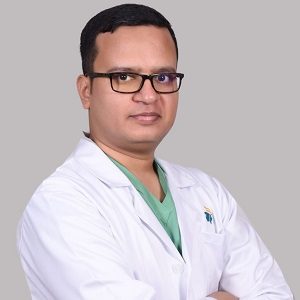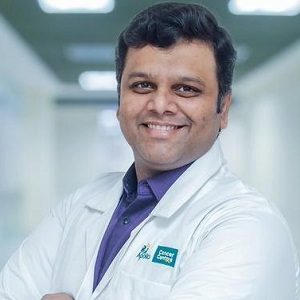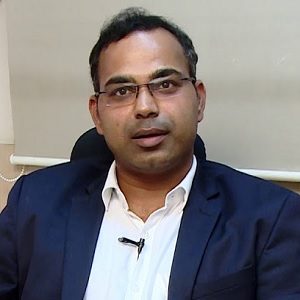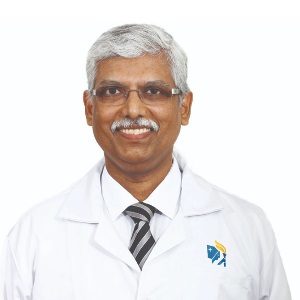Best Doctors in India for Foraminotomy procedure
- Orthopedic Surgeon & Spine Surgeon, Mumbai, India
- Over 25 years’ experience
Profile Highlights:
- Dr. Ram Chaddha is a specialist Spine Surgeon in Mumbai with expertise in the management and treatment of all kinds of spinal disorders for over 25 years.
- Dr. Chaddha is trained in Minimally Invasive Spine Surgery and is also among the few surgeons in India to hold expertise in Minimally Invasive Cosmetic Spine Surgery.
- Dr. Ram Chaddha spent a considerable number of years training undergraduate and postgraduate students and has also been an examiner for such courses at Mumbai University.
- Orthopedic Surgeon and Spine Surgeon, Mumbai, India
- Over 20 years’ experience
Profile Highlights:
- Dr. Vishal Peshattiwar is a leading Spine Surgeon in Mumbai specializing in Minimally Invasive Spine Surgeries (MISS)
- He has an experience of more than 2 decades in spine surgery and holds the credit of performing over 4000 spinal surgeries to
- He is the first in India to use the MISS technique on a patient with liver failure and Tuberculosis.
- Dr. Vishal Peshattiwar’s most notable case till date was performing a Revision Spine Surgery through MISS on the oldest patient in India.
- Orthopedic & Spine Surgeon, New Delhi, India
- Over 14 years’ experience
Profile Highlights:
- Dr. Om Prakash Gupta is a reputed Spine Surgeon in India.
- He is currently functioning as a Consultant – Orthopedics & Spine at Max Smart Super Speciality Hospital, New Delhi
- He has over 14 years of experience.
- Orthopedic Surgeon, Chennai, India
- Over 21 years’ experience
Profile Highlights:
- Dr. A Navaladi Shankar is a well-known spine surgeon and orthopedist in Chennai with 21+ years of experience.
- He completed an MBBS from Al-Ameen Medical College, MNAMS from the National Board of Education, and a Diploma from Sri Ramachandra Medical College and Research Institute.
- Dr. Shankar holds expertise in Laminectomy, Lower Back Pain and Neck Pain Treatment, Arthritis Management, and Trauma Surgery.
- Orthopedic Surgeon & Spine Surgeon, New Delhi, India
- Over 18 years’ experience
Profile Highlights:
- Dr. Amit Kumar Agarwal is a Delhi-based orthopedic, joint replacement, and spine surgeon consultant who has been assuring joint and spine health for about 18 years.
- Dr. Agarwal has garnered numerous accolades for his work in treating Joints and Musculoskeletal Disorders, pain management, sports injury, and articular degeneration during his career.
- Orthopedic and Spine Surgeon, Gurugram, India
- Over 25 years’ experience
Profile Highlights:
- With over 25 years of experience, Dr. Rajesh Kumar Verma can be generally considered a boon for people suffering from complex, bone, joint, or spine disorders.
- Currently known as one of India’s leading spine experts in India, Dr. Rajesh Kumar Verma performs as many as 50 surgeries in a month. The types of surgeries he performs include all types of spine surgeries, joint replacements, as well as complex trauma surgeries.
- Orthopedic Surgeon and Spine Surgeon, Chennai, India
- Over 12 years’ experience
Profile Highlights:
- Dr. Madhu Kiran Yarlagadda is an orthopedics – consultant specializing in Joint and spine surgery and works at the Apollo hospitals of Chennai.
- Dr. Madhu Kiran Yarlagadda’s team carried out Robotic Spine Surgery for the first time in South-East Asia and performed Endoscopic Transforaminal Spine Surgery in Chennai.
- He treats spine diseases and has the facilities and expertise to perform robotic spine surgery. Along with that, he treats patients with joint and other orthopedic issues.
- Spine Surgeon and Orthopaedic Surgeon, Chennai, India
- Over 18 years’ experience
Profile Highlights:
- Dr. Muralidharan Venkatesan is a consultant in spine surgery from Chennai.
- He provides comprehensive cervical (neck), thoracic (upper back), and lumbosacral (lower back) conditions treatment.
- Dr. Venkatesan pursued MBBS, MRCS, and a fellowship FRCS and shifted his specialization to spinal surgery.
- Dr. Venkatesan has his papers published in several journals.
- Orthopedic Surgeon and Spine Surgeon, Chennai, India
- Over 23 years’ experience
Profile Highlights:
- Dr. Ravi Venkatesan is a spine surgery specialist from Chennai, Tamil Nadu.
- His experience in spine surgery, orthopedics, and spine deformity surgery date back nearly 23 years.
- Dr. Venkatesan has performed several surgeries and has been an active member of various orthopedics groups.
- Many organizations have recognized his service and have awarded him for his dedication.
- Orthopedic Surgeon and Spine Surgeon, Gurugram, India
- Over 15 years’ experience
Profile Highlights:
- Dr. Hitesh Garg is one of the best spine surgeons in Gurugram.
- Dr. Hitesh Garg has undertaken over 5000 spine surgical operations, including 2500+ spinal fusions (TLIF, ACDF, and others); 1000 malformation revision operations (Scoliosis and kyphosis), 300 lumbar and cervical artificial disc replacements, 500 fracture treatments, and 500 other intricate procedures such as a spinal tumor, congenital defects, and spinopelvic fixations.
Best Hospitals in India for Foraminotomy procedure
Reliance Hospital, Mumbai
- City: Mumbai, India
Hospital Highlights:
- Reliance Hospital is one of the best super-specialty care hospitals in Navi Mumbai.
- The main purpose of this hospital is to become a trustworthy place for the best health and hope for society. The hospital is well connected to the suburbs of Mumbai and Navi Mumbai.
- The hospital has various specialty departments, viz., Accident & Emergency, Anesthesiology, Dental Services, Dermatology, Diabetology, Dietetics Nutrition, Endocrinology, ENT, Gastroenterology, General Surgery, Gynaecology And Obstetrics, Hepato Pancreato Biliary Surgery, Infectious Disease, Internal Medicine, Interventional Radiology, Laboratory Medicine, Minimal Access Laparoscopic Surgery, Nephrology, Neurosciences, Opthalmology, Orthopaedics, Paediatrics, Pain Management Palliative Care, Physical Medicine Rehabilitation, Plastic And Reconstructive Surgery, Psychiatry, Pulmonary Medicine, Radiology, Rheumatology, Transplant, Urology Andrology, Vascular Surgery
Lilavati Hospital & Research Centre, Mumbai
- City: Mumbai, India
Hospital Highlights:
- Lilavati Hospital & Research Centre is India’s premier multi-speciality tertiary care hospital and has been recognised as a global medical excellence centre.
- Lilavati Hospital & Research Centre has built an unrivalled level of trust with its patients over the years, thanks to a solid foundation that comprises cutting-edge facilities, the best medical competence, research, education, and charity endeavours.
- The hospital is quite proud of the fact that it now serves patients from all kinds of backgrounds, not just from the United States but from all around the world.
- The hospital has a total of 323 beds, one of the largest Intensive Care Units (ICUs), 12 Operation Theatres with modern amenities, over 300 consultants, and almost 1,800 personnel.
Venkateshwar Hospital, Dwarka, New Delhi
- City: New Delhi, India
Hospital Highlights:
- State-of-the-art technology and devoted healthcare professionals have been brought together under one roof at Venkateshwar Hospital to provide genuine medical care. The hospital’s professionals work together as a team to deliver the best possible treatment to their patients, using the most sophisticated equipment and information technology.
- Venkateshwar Hospital’s mission is to attain global excellence in healthcare by employing evidence-based, ethical clinical practices and cutting-edge technology by a team of highly skilled experts.
Foraminotomy
Foraminotomy is a surgical procedure which is performed for decompressing i.e. removing pressure on a spinal nerve root.
The term comes from the spine’s foramen, which is the hollow nerve passageways, through which your nerve roots exit the spinal column. The procedure is performed in the thoracic spine, cervical spine as well as in the lumbar spine.
Purpose
Blockages that lead to your spinal column getting narrowed or an intervertebral foramen getting blocked are termed as spinal stenosis. There are various processes which can lead to your intervertebral foramen getting blocked and the nerve getting compressed, leaving the spinal cord.
Conditions that can lead to spinal stenosis include:
- Degeneration of the intervertebral discs, which can cause them to bulge into the foramen
- Cysts or tumors
- Degenerative arthritis of the spine (spondylosis), which can lead to bony spurs
- The nearby ligament getting enlarged
- Skeletal disease
- Congenital problems like dwarfism
Degenerative arthritis of the spine, which comes from old age, is generally the most common cause of spinal stenosis.
This nerve compression might occur along any part of the spinal column. Your compressed nerve might be leading to symptoms, such as pain in the affected region as well as tingling and weakness in your affected limb. A foraminotomy might also be required if you have already tried other treatments but had no success. This can include physical therapy, pain medicines, as well as epidural injections.
Though generally this surgery can be performed as an elective procedure for helping relieve these symptoms, in some cases you might also need to have an emergency foraminotomy if your symptoms get worse quickly or if you are having problems in your bladder caused by your nerves.
Preparation
Your doctor will provide you instructions regarding getting ready for your surgery. Ask him/her if you will need to stop taking any kind of medications, such as blood thinners. You will also need to avoid food and drink after midnight on the night before the procedure.
Before your surgery, your doctor might also order additional imaging tests for getting more information about your nerves and spinal column. Generally, an MRI is the most common test which is performed.
Procedure
The procedure is minimally invasive and can be performed at any level of your spine. Before the procedure, general anesthesia is used.
During the surgery, first, you lie down on the operating table. An incision is first made in the middle of the back of your spine. The length of the incision generally depends on how much of your spinal column is going to be operated on. Skin, muscles as well as ligaments are moved to the side. A surgical microscope is required in some cases so that your surgeon can see the back.
Some bone is cut or shaved away for opening the nerve root opening, i.e. foramen. Disk fragments causing the blockage will be removed. If other bone at the back of your spine also requires removal, your surgeon might need to perform any additional procedure such as laminotomy. Then your surgeon might perform a spinal fusion to make sure that your spine is stable after the surgery. Then the muscles and tissues are put back in place, and the skin is sewn together.
Aftercare & recovery
Few hours after the procedure is done, you should be able to sit up in bed. If there is any pain, you can control it with medications. You should also be able to eat a normal diet unless your doctor recommends against it.
Patients are generally able to go home in a day or two following the procedure. Make sure that you follow your doctor’s instructions regarding wound care, physical activity as well as medications. Sometimes people might also need physical therapy after this procedure. After a few weeks, you should be able to perform light work.
Keep your follow-up appointments with your doctor and discuss with him/her about any new worsening symptoms following foraminotomy.
Around 80-90 percent of patients generally benefit from this surgery and are also able to maintain it long term.
Risks
Though foraminotomy is successful in most people and there is very minimal risk associated with the procedure, in some rare cases, there might be few complications which can include:
- Infection
- Nerve damage
- Damage to the spinal cord
- Excess blood loss
- Stroke
- Complication from anesthesia
Other than these complications, there is also a slight risk that your procedure will not relieve your pain. The risk of complications that arise out of the procedure can generally vary from person to person depending on several conditions such as age, anatomical location of the surgery in the spine, the patient’s medical condition, etc.

